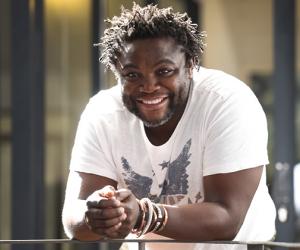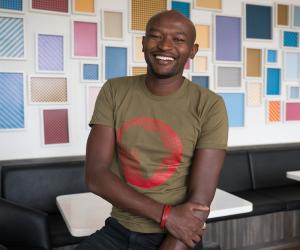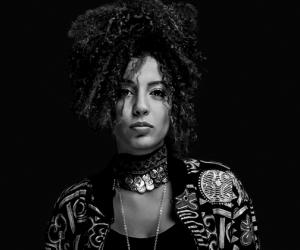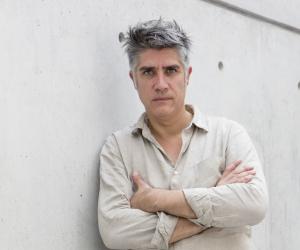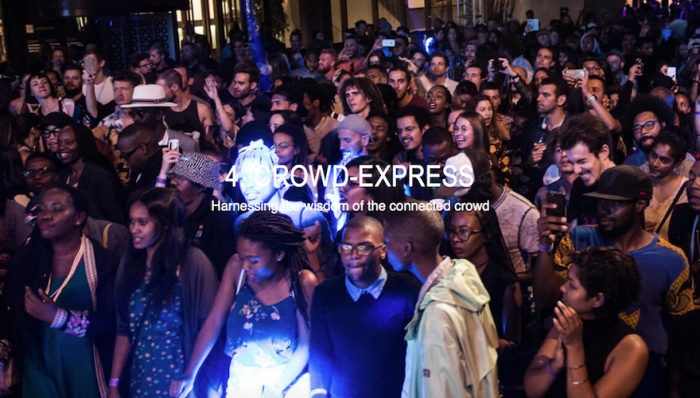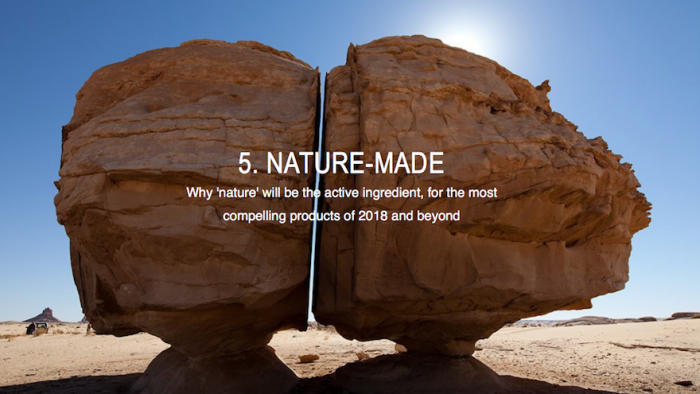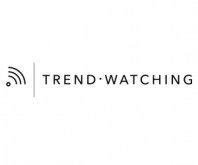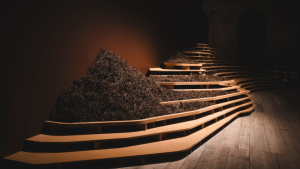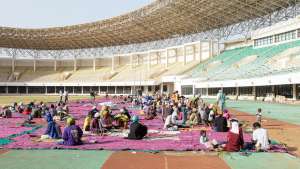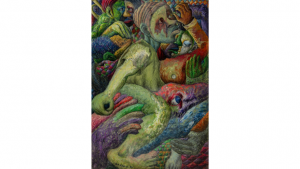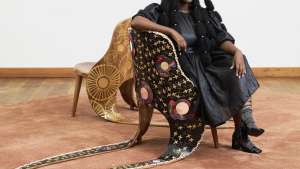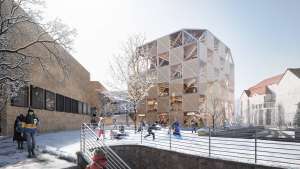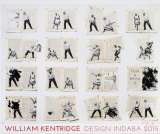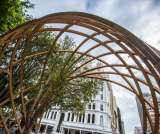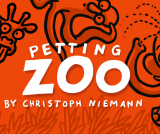The Design Indaba is a three-day conference, held in Cape Town, South Africa. Founded in 1995 by Ravi Naidoo, the gathering showcases the most interesting, innovative and cutting-edge ‘doers’. The festival includes a mixture of African and global speakers, who are encouraged to share their unique tales of creativity, innovation and, of course, design.
After being blown away in 2017 by the best-in-class production values and high quality presentations, TrendWatching decided to get more involved this year. Producing a mid-year Design Indaba ‘trends special’ was a no-brainer! And it’s fair to say that again we were enthralled by event’s inspirational content.
Now that the post-festival hype has long passed and the dust truly settled, this briefing digs deeper, beyond the bells and whistles, to offer you the five most recurring trends, themes and concepts, reiterated by various speakers at the conference.
Below are the five trends, inspired by this year’s Design Indaba. The trends are a mixture of old and new, some revived and making a comeback, since originally published.
- NEW AFRICAN NARRATIVES
We spoke about NEW AFRICAN NARRATIVES back in 2015 and yet this trend shows no signs of slowing down! As this global movement has grown, Africans living on the continent and in the diaspora are boldly celebrating all things Wakandan (read: black). In 2018, redefining the narrative is expected by African consumers but also by global citizens eager to connect with the continent beyond its dated clichés.
At the Design Indaba, NEW AFRICAN NARRATIVES came in the guise of ‘Afrofuturism’, which was defined in a multitude of manners by opening speaker Sunu Gonera. The film director reflected on the term as ‘… merging the past and the present of African culture in order to birth a brighter future.’ This sentiment continued to be echoed by every African speaker that graced the stage, regardless of their specialization.
UX designer Mark Kamau spoke about finding new ways to address the lack of connectivity for many Africans whilst emphasizing the very specific needs and constraints of the average African consumer. The result of his outside-the-box approach to these issues? BRCK education’s ‘digital classroom in a box’, a solution known as the Kio Kit, and one which garnered the young Kenyan a standing ovation.
- EMOTIVE INTELLIGENCE
Hyper-congested cities, increasingly hectic lifestyles and the over-abundance of new technologies are, for many, creating over-efficient yet under-fulfilled existences. The pressure to use technology to cram in as many tasks as possible has brought about a kickback from consumers worldwide, who believe that their emotional wellbeing is paying the price for convenience.
Thomas Heatherwick, a British architect who spoke at the festival, presented his ideation process and the connective theme behind his most successful buildings to date. He stated that ‘soulfulness’ was key to ensuring his buildings truly connected with people. Entrepreneurs too are responding to this demand by producing new, experience-based offerings that inject a ‘human touch’, tap into the ‘soul’ of the end user or even utilize emotions themselves to convey a typically inanimate output. So in 2018, as technologies progress, so will the enduring quest for brands to embed some EMOTIVE INTELLIGENCE.
- IMPACT EMBEDDED
Consumers across the globe are increasingly weary of a throwaway consumer culture and the relentless pursuit of the Next Big Thing. They’re now seeking brands that are imbued with greater meaning, stand for something or are striving to bring about a positive social impact via their offerings.
Speaking on issues surrounding water scarcity, design researcher Shaakira Jassat emphasized that Cape Town’s recent water crisis is not just the city’s responsibility, but humanity’s too! Equally, ever-connected, informed and concerned citizens are looking towards institutions, brands and entrepreneurs to tackle such issues, in ways that feel genuine and have real impact.
Worthy social causes that sit at the forefront of a brand’s purpose will undoubtedly speak the language of tomorrow’s customers, who are all but exhausted by token CSR initiatives. Delivering solutions that benefit people, society and the planet will unlock profits that are sustainable in every sense.
- CROWD-EXPRESS
2018’s Design Indaba couldn’t get enough of open-sourced/crowd-sourced/crowd-funded… and it’s easy to see why! Of course, collective input can improve design, minimize risk, reduce costs, organize funding and increase the speed and robustness of decision-making.
The case for people power was eloquently presented in a case study by architect Alejandro Aravena, who spoke about bringing various stakeholders from local communities in Chile together in stress-inducing forums, enabling him to learn how to ‘ask the right questions’ and gather ideas on how to prioritize rebuilding their city after a natural disaster had completely destroyed it.
Consumers enjoy actively participating in and contributing to the products, projects, services and experiences they consume, and this desire shows no sign of waning. However, with the savviest of producers and entrepreneurs finding increasingly novel ways to tap into this ever-multiplying human resource, 2018 begs the question: how will your brand make the most out of CROWD-EXPRESS?
- NATURE-MADE
Recycling. Upcycling. Downcycling. We all know what that’s about but 2018 will be pushing the term ‘going green’ to an even more literal extreme. Probably the most avant-garde presentations of the entire conference were related to this next phase of eco-consciousness. Ensamble Studio’s architectural presentations emphasized the importance of going back to the roots, to learn, extrapolate from, manipulate and create from and together with nature.
This powerful trend in the seedlings of its existence, proves that cutting-edge visionaries worldwide are currently working on unraveling the potential of a truly sustainable planet. Consumers too, tired of negative information surrounding climate change, diminishing natural resources and the unsavory effects it continues to have on the environment, are not only ready but excited by these solutions. 2018 will usher in a new phase of eco-research/tech/progress and eventually products(!), where nature itself will be harnessed to provide better solutions and a brighter planetary future, for all of mankind! Amen!

